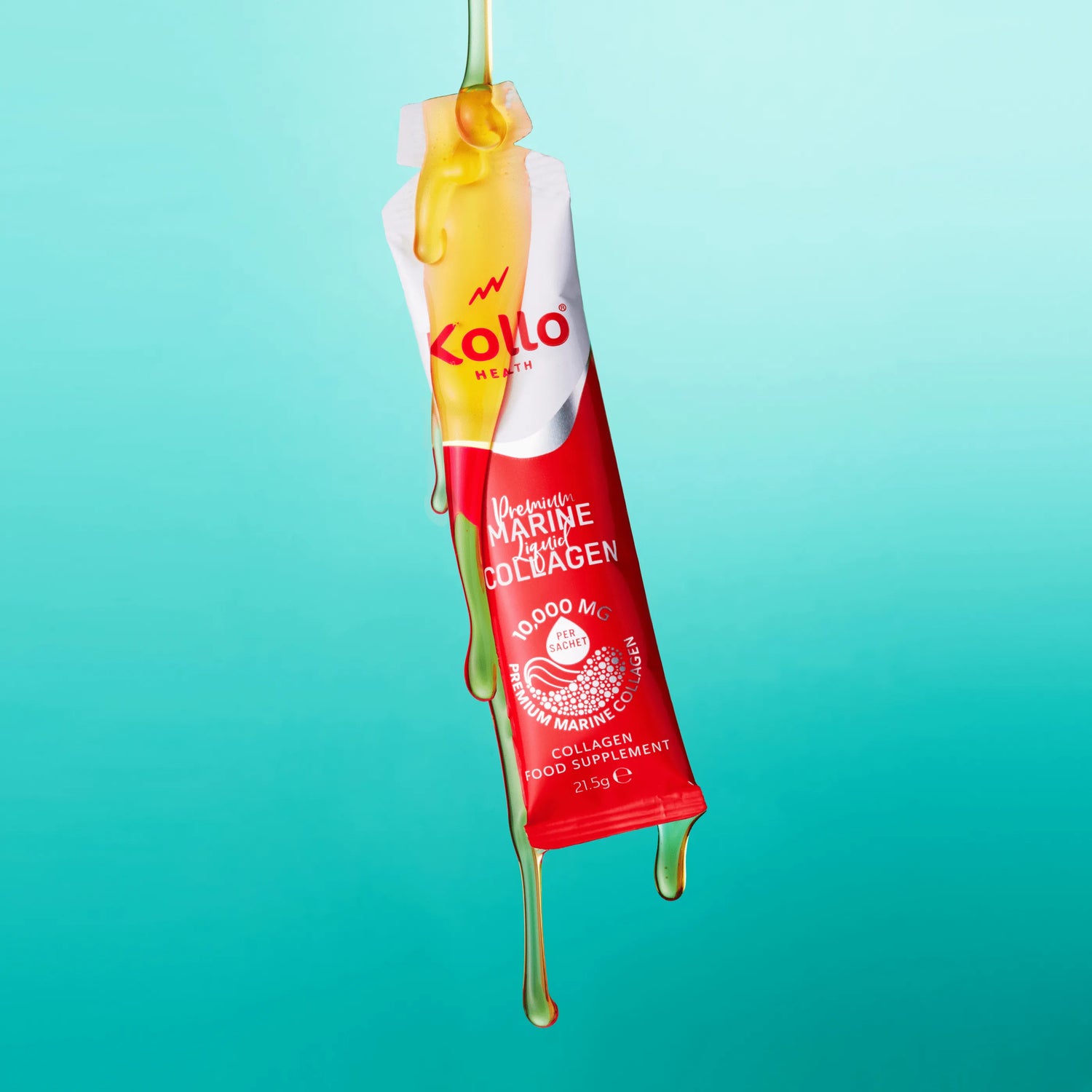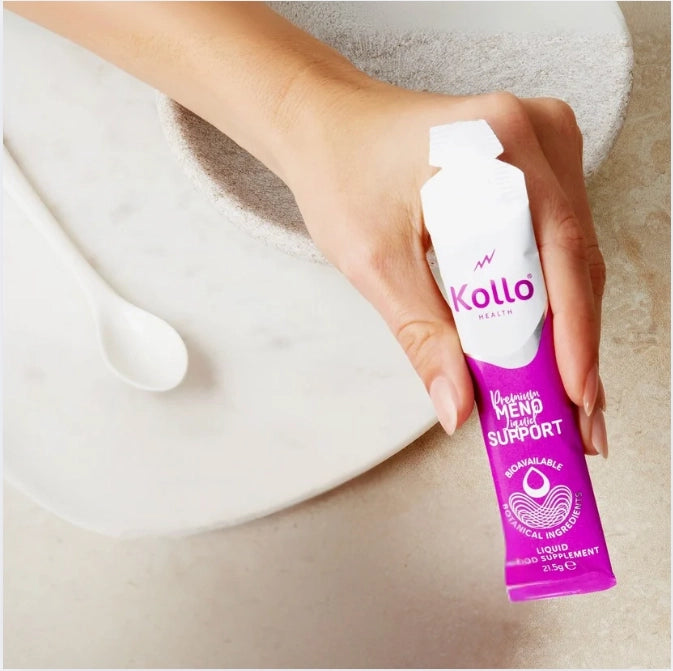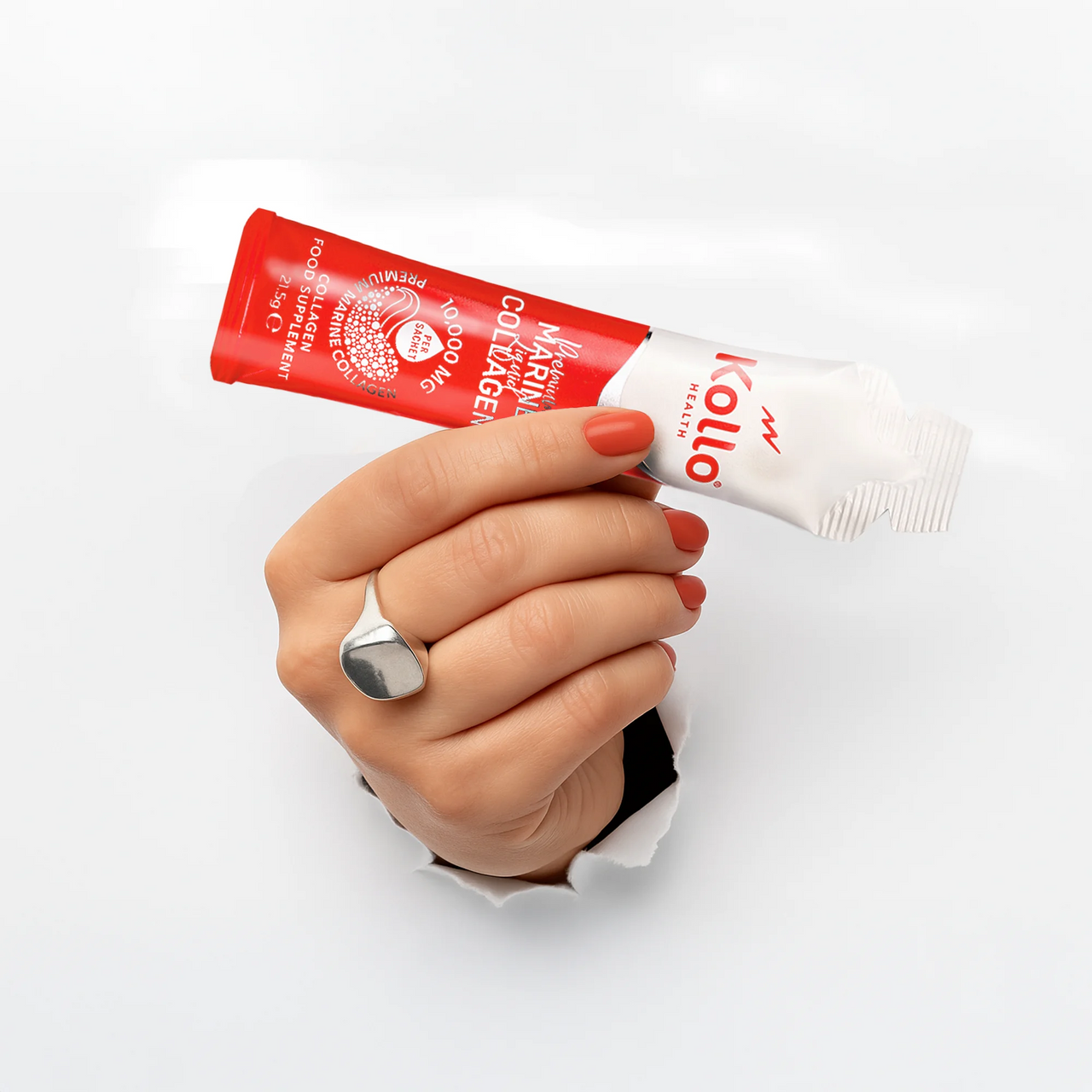When it comes to collagen supplementation, two terms frequently appear in health and wellness discussions: marine collagen and collagen peptides. While both offer impressive benefits for skin health, joint support, and overall wellness, understanding their differences can help you make an informed decision about which supplement best suits your needs. This comprehensive guide explores the distinctions between these two popular collagen forms and helps you determine which might be the right choice for your health goals.
What are collagen peptides?
Collagen peptides are small chains of amino acids derived from collagen proteins that have been broken down through a process called hydrolysis. This process transforms larger collagen molecules into smaller, more easily absorbed peptides, making them highly bioavailable for the human body. Unlike whole collagen proteins, collagen peptides can be readily dissolved in both hot and cold liquids, making them convenient for daily supplementation.
The hydrolyzation process that creates collagen peptides involves breaking down the complex triple-helix structure of collagen into shorter amino acid chains. This breakdown doesn't diminish the nutritional value; instead, it enhances the body's ability to absorb and utilize these essential amino acids. When you consume collagen peptides, they provide the building blocks necessary for collagen synthesis within your body.
Collagen peptides typically contain a rich profile of amino acids, including glycine, proline, and hydroxyproline, which are crucial for maintaining healthy skin, joints, and connective tissues. These peptides can be derived from various sources, including bovine (cow), porcine (pig), or marine sources, each offering slightly different amino acid profiles and benefits.
The versatility of collagen peptides makes them popular among health-conscious consumers. They can be easily incorporated into smoothies, coffee, soups, or other beverages without significantly altering taste or texture. This convenience factor, combined with their high bioavailability, has made collagen peptides a go-to choice for those seeking to support their body's natural collagen production.
What is Marine Collagen?
Marine collagen is a specific type of collagen extracted from fish skin, scales, or bones. This form of collagen is predominantly Type I collagen, which is the most abundant type found in human skin, bones, and connective tissues. The extraction process involves carefully processing fish byproducts to isolate and purify the collagen, which is then typically hydrolyzed into marine collagen peptides for optimal absorption.
One of the distinguishing features of marine collagen is its superior bioavailability compared to other collagen sources. The peptide size in marine collagen is generally smaller than those found in bovine or porcine collagen, allowing for faster and more efficient absorption by the body. This enhanced bioavailability means that marine collagen can more readily support collagen synthesis and provide benefits for skin elasticity, hydration, and overall skin health.
Marine collagen is particularly rich in Type I collagen, which makes up approximately 80% of the collagen in human skin. This direct correlation means that marine collagen supplementation can specifically target skin-related concerns, making it a popular choice for those focused on anti-aging and beauty benefits. The amino acid profile of marine collagen is especially well-suited for stimulating collagen synthesis in the skin.
The source of marine collagen also offers environmental advantages. Most marine collagen is derived from fish processing waste, making it a sustainable option that helps reduce food waste. This eco-friendly aspect, combined with its effectiveness, has contributed to the growing popularity of marine collagen supplements in the UK and worldwide.
Why Take Collagen Peptides or Marine Collagen

Both collagen peptides and marine collagen offer numerous health benefits that extend beyond basic nutritional support. Understanding these benefits can help you appreciate why collagen supplementation has become such a prominent aspect of modern wellness routines.
Skin, Hair, and Nail Health
The benefits of liquid collagen and collagen peptides for skin health are well-documented and impressive. Regular collagen supplementation can significantly improve skin hydration, elasticity, and overall appearance. As we age, our body's natural collagen production decreases, leading to visible signs of aging such as fine lines, wrinkles, and reduced skin firmness.
Marine collagen benefits are particularly pronounced for skin health due to its high concentration of Type I collagen. Studies have shown that marine collagen supplementation can increase skin hydration by up to 28% and improve skin elasticity by 20% after just eight weeks of consistent use. The smaller peptide size in marine collagen allows for rapid absorption, delivering essential amino acids directly to skin cells where they can stimulate collagen synthesis.
For hair and nail health, both collagen peptides and marine collagen provide the necessary building blocks for keratin production. The amino acids glycine, proline, and hydroxyproline found in collagen supplements support stronger, healthier hair growth and can reduce nail brittleness. Many users report improved hair thickness and shine, along with faster nail growth, after incorporating collagen supplementation into their daily routine.
The anti-aging properties of collagen extend beyond surface-level improvements. Regular supplementation can help maintain skin thickness, reduce the appearance of age spots, and support the skin's natural repair mechanisms. This makes both forms of collagen valuable additions to any comprehensive anti-aging skincare regimen.
Joint, Muscle, and Bone Support
Collagen peptides and marine collagen provide crucial support for joint health and mobility. As the primary structural protein in cartilage, collagen plays a vital role in maintaining joint flexibility and reducing discomfort associated with aging or physical activity. The amino acids in collagen supplements help rebuild and maintain cartilage tissue, potentially reducing joint stiffness and improving overall mobility.
For muscle recovery and bone support, collagen peptides offer particular advantages. The high concentration of amino acids supports muscle protein synthesis, making collagen supplementation beneficial for athletes and active individuals. Additionally, collagen provides the structural framework for bones, and supplementation can help maintain bone density and strength, particularly important as we age.
Research indicates that consistent collagen supplementation can reduce joint pain and improve joint function in both active individuals and those experiencing age-related joint issues. The bioavailable nature of both collagen peptides and marine collagen ensures that these benefits can be realized relatively quickly, often within 4-6 weeks of consistent use.
Gut and Digestive Benefits
The gut health benefits of collagen supplementation are often overlooked but equally important. Collagen peptides contain glycine, an amino acid that supports the production of stomach acid and helps maintain the integrity of the intestinal lining. This can lead to improved digestion and reduced symptoms of digestive discomfort.
Marine collagen peptides are particularly beneficial for gut health due to their anti-inflammatory properties. The amino acids in marine collagen can help seal the gut lining, reducing intestinal permeability and supporting overall digestive health. This is especially important for individuals dealing with digestive issues or those looking to optimize their gut microbiome.
The collagen proteins in supplements also support the production of other important compounds in the digestive system, including enzymes and protective mucins. This comprehensive support for digestive health makes collagen supplementation valuable for overall wellness, not just skin and joint health.
Who Should Take Marine Collagen vs. Collagen Peptides?
Choosing between marine collagen and collagen peptides depends on several personal factors, including health goals, dietary preferences, and individual sensitivities.
Age and Health Goals
For individuals primarily concerned with skin health and anti-aging benefits, marine collagen supplements often provide superior results. The high concentration of Type I collagen in marine sources directly supports skin collagen synthesis, making it ideal for those focused on improving skin elasticity, reducing wrinkles, and maintaining a youthful appearance.
Younger individuals or those with active lifestyles might benefit more from broader-spectrum collagen peptides, which offer comprehensive support for joints, muscles, and connective tissues. Bovine collagen peptides, in particular, provide a mix of Type I and Type III collagen, offering more diverse benefits for overall structural health.
For individuals over 30, when natural collagen production begins to decline more rapidly, marine collagen's superior bioavailability makes it an excellent choice for counteracting aging skin. The faster absorption rate means quicker visible results, which can be particularly motivating for those new to collagen supplementation.
Allergen Considerations and Sensitivities
Allergen considerations play a crucial role in choosing between marine collagen and other collagen peptides. Marine collagen supplements are suitable for pescatarians but not appropriate for those with fish allergies. The potential for a slight fishy taste or smell, unless highly refined, may also be a consideration for some users.
Bovine collagen peptides are not suitable for individuals with beef allergies or those following pescatarian diets. However, they often have a more neutral taste profile, making them easier to incorporate into various foods and beverages.
For individuals with multiple food sensitivities, carefully reviewing the source and processing methods of collagen supplements is essential. High-quality marine collagen supplements in the UK are typically highly refined to minimize taste and odor while maintaining purity and potency.
How to Use and Supplement with Collagen

Understanding how to properly use collagen supplements maximizes their benefits and ensures you get the most value from your supplementation routine.
Forms Available: Powder, Capsule, Liquid
Collagen supplements are available in various forms, each offering unique advantages. Collagen powder is the most popular form due to its versatility and typically higher concentration per serving. Powders can be easily mixed into beverages, smoothies, or foods, making them convenient for daily use.
Liquid collagen supplements offer the advantage of pre-dissolution, potentially improving absorption rates. However, they may contain additional ingredients like flavoring agents or preservatives that some users prefer to avoid. The benefits of liquid collagen are often comparable to powder forms when both are high-quality products.
Capsule forms provide convenience for those who prefer not to mix powders or who travel frequently. While capsules may have slightly lower bioavailability due to the encapsulation process, they offer precise dosing and eliminate any taste concerns associated with marine collagen.
Best Time to Take Collagen
The timing of collagen supplementation can influence its effectiveness. Many experts recommend taking collagen on an empty stomach, typically first thing in the morning or before bedtime. This timing allows for optimal absorption without interference from other nutrients or digestive processes.
For skin health benefits, taking marine collagen in the evening may be particularly beneficial, as the body's natural repair and regeneration processes are most active during sleep. This timing aligns with the body's natural collagen synthesis patterns and may enhance the anti-aging benefits of supplementation.
Some individuals prefer to take collagen peptides post-workout to support muscle recovery and joint health. The amino acids in collagen can aid in muscle protein synthesis and help repair exercise-induced tissue damage.
Dosage Guidelines
Effective collagen supplementation typically requires consistent daily intake of 5-20 grams, depending on individual goals and the specific product. For skin health and anti-aging benefits, 5-10 grams of marine collagen daily is often sufficient to see noticeable improvements within 4-8 weeks.
For joint support and muscle recovery, higher doses of 10-20 grams may be more appropriate. It's important to start with lower doses and gradually increase to assess tolerance and effectiveness. Quality collagen peptide supplements should provide clear dosing instructions based on their specific formulation and concentration.
Consistency is key to achieving optimal results with collagen supplementation. Daily use over several weeks or months is necessary to see significant improvements in skin health, joint function, or other targeted benefits.
What are the Similarities and Dissimilarities Between Collagen Peptides and Marine Collagen?
| Aspect | Collagen Peptides | Marine Collagen |
|---|---|---|
| Source | Usually derived from bovine (cow), porcine (pig), or chicken | Extracted specifically from fish skin, scales, or bones |
| Type of Collagen | Mainly Type I and III (depends on animal source) | Primarily Type I |
| Bioavailability | High (due to hydrolyzation) | Very high (smaller peptide size makes absorption faster) |
| Processing Method | Hydrolyzed (broken down into peptides) | Also hydrolyzed into peptides |
| Taste and Smell | Often more neutral, especially bovine-derived | Can have a slight fishy taste/smell unless highly refined |
| Environmental Impact | Moderate; varies based on livestock farming | Lower; often considered more sustainable (utilizes fish byproducts) |
| Suitability for Diets | Not suitable for pescatarians | Suitable for pescatarians |
| Common Uses | Joint health, muscle recovery, skin, gut health | Skin health, anti-aging, beauty-focused benefits |
| Allergy Consideration | Not suitable for people allergic to beef or pork | Not suitable for those with fish allergies |
Final Thoughts
The choice between marine collagen and collagen peptides ultimately depends on your individual health goals, dietary preferences, and specific needs. Both forms of collagen supplementation offer significant benefits for skin health, joint support, and overall wellness, but their distinct characteristics make them suitable for different purposes.
Marine collagen peptides excel in supporting skin elasticity, hydration, and anti-aging goals due to their high Type I collagen content and superior bioavailability. The smaller peptide size allows for rapid absorption, making marine collagen benefits particularly noticeable for those focused on beauty and skincare outcomes. Additionally, marine collagen's sustainable sourcing from fish byproducts makes it an environmentally conscious choice.
Collagen peptides from bovine sources offer broader structural support, benefiting not only skin health but also joint function, muscle recovery, and digestive wellness. The combination of Type I and Type III collagen in bovine collagen peptides provides comprehensive support for various body systems, making them ideal for individuals seeking overall health enhancement.
Both forms stimulate collagen synthesis within the human body, providing essential amino acids that support the body's natural collagen production. The key to success with any collagen supplementation lies in consistent daily use, proper dosing, and choosing high-quality products that align with your specific health objectives.
Whether you choose marine collagen supplements for their targeted skin benefits or broader collagen peptides for comprehensive health support, incorporating these supplements into your daily routine can provide noticeable improvements in skin health, joint function, and overall well-being. The difference between marine collagen and other collagen peptides lies not just in their source, but in their specific benefits and applications for your individual health journey.
For those in the UK seeking high-quality collagen supplements, both marine collagen and collagen peptides are readily available in various forms, making it easier than ever to incorporate these beneficial supplements into your daily wellness routine. The investment in quality collagen supplementation can yield significant returns in terms of improved skin health, enhanced joint function, and overall vitality as you age.







